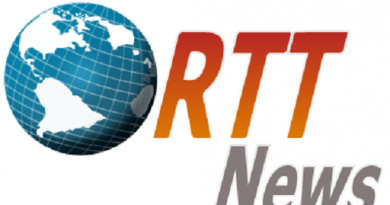Need a $75,000 personal loan? What to know
Only a few lenders offer $75,000 personal loans, and you’ll likely need very good to excellent credit to qualify. (iStock) Whether you need to install new appliances in your home, pay for a major event, or cover another personal expense, a personal loan could help. If you need to borrow a large amount — such as a $75,000 personal loan — it’s important to carefully consider your lender options to find the right loan for you. Here’s what you need to know before taking out a $75,000 personal loan. Here are a few of your lender options for getting a $75,000 personal loan: Online lenders can be one of the more convenient options for getting a large personal loan, as they tend to offer easy applications and fast loan decisions. However, keep in mind that few online lenders offer loans as large as $75,000, so your options might be somewhat limited. The time to fund for most online loans is typically five business days — though some lenders will fund loans as soon as the same or next business day after approval. You may be able to find a $75,000 personal loan from one or more of Credible’s personal loan partner lenders. Personal loans of $75,000 aren’t widely available at credit unions or banks. However, you do have some options. For example, Wells Fargo offers personal loans up to $100,000. If you have the flexibility to borrow less than $75,000, here are a few banks and credit unions that offer $50,000 personal loans: If you’re ready to apply for a $75,000 personal loan, follow these four steps: Before you take out a personal loan, remember to consider as many lenders as possible to find a loan that works for you. Credible makes this easy — you can compare your prequalified rates from multiple lenders in two minutes. How much you’ll pay for a $75,000 loan mostly depends on your credit and the repayment term you choose, as these will both play a role in determining your interest rate. In general, the better your credit score, the lower the interest rate you’ll get. For example, here’s how credit scores affected the average personal loan interest rates for borrowers who prequalified for a five-year personal loan through Credible in March 2021: As you can see, your credit score plays a major role in determining your interest rate and overall loan cost. If you decide to take out a personal loan, be sure to consider how much it will cost you so you can prepare for any added expenses. You can use Credible’s personal loan calculator to see how different interest rates and loan terms will affect your monthly payment and overall cost. Generally, you need a credit score of at least 620 to qualify for a personal loan. However, if you’re looking to borrow as much as $75,000, you’ll likely need very good to excellent credit — usually meaning a score of 740 or higher. Having this kind of credit score shows the lender that you’re less likely to default on the loan, which gives you a better chance of getting approved. If you have less-than-perfect credit, it could be a good idea to spend some time improving your credit before you apply for a personal loan. A few ways to potentially boost your credit include: Before you apply for a personal loan, it’s a good idea to do your research and compare eligibility requirements from various lenders. This way, you see if your credit meets the mark — or if you should build it up first. If you’re ready to apply, remember to consider your loan options from as many lenders as you can to find the right loan for you. Credible makes this easy — you can compare your prequalified rates from multiple lenders in two minutes. A personal loan isn’t your only option for borrowing $75,000. If you’re a homeowner, here are a few other alternatives to consider: Source: Read Full ArticleWhere to get a $75,000 personal loan
Online lenders
Banks and credit unions
How to apply for a $75,000 personal loan
How much will you pay for a $75,000 personal loan?
What credit score do you need for a $75,000 personal loan?
Alternatives to a $75k personal loan



